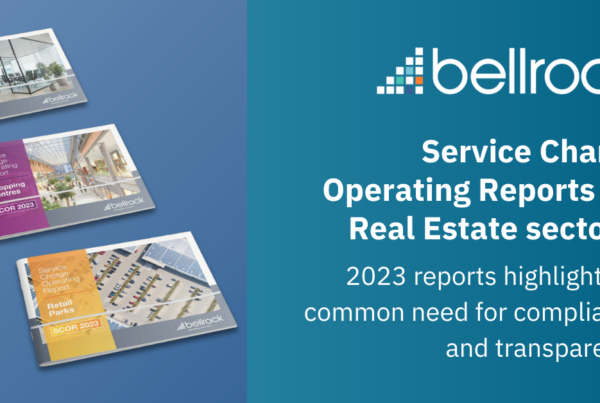Realigning to the #NextNormal.
Trends in Property and Facilities Management.
The Rise of Facilities Management Professionals
While most businesses are now emerging from lockdown and moving back into re-occupation, our progressive customers are re-imagining their strategies and considering their estate models. In the context of a post-coronavirus world, many operators and real-estate owners must guess what potential longer-term effects and shifts may happen in property and Facilities Management (FM) industry. Now more than ever, this is the time for the FM professional to raise their profile and personal branding in the C-suite. Whether providing health and safety guidance on occupancy levels, designing and re-imaging the use of a building or resizing an estate, there has never been a more exciting or challenging time to head an estate management function.
Current challenges
In a matter of weeks, our working world moved from business as usual to cautious travel, work from home regulations and office closures. Real estate leaders saw the demand for many types of space go down, especially assets with a greater human density such as malls, lodging, and student housing taking the hardest hit. Their steady cash flow turned into delays, concessions, and abatements as tenants now struggle to meet their lease payments. All this has created an unprecedented crisis for the real estate industry and there has never been a bigger need for innovation and creativity to survive in this sector.
It is up to the real estate players to take immediate action and take advantage of emerging trends to ensure their future success. In the past few months, we have already seen some impactful shifts in estate management. Even the already high demands for industrial space have increased since e-commerce has become more important during the lockdown. Besides that, the health and safety of employees, tenants and other end-users of space have become the most essential factor in facilities management with clients expecting clear communication and regulations. These sudden changes might impact the real estate landscape permanently, so facilities management professionals are expected to take action to strengthen their position through this crisis rather than just adapting.
Re-imagine space
With the outbreak of COVID-19, we will have to re-imagine spaces to make sure a second pandemic can be overcome more easily. Office spaces might no longer opt for open-plan layouts and densification. Buildings and departments will have access points to only a limited number of people. As the hospitality sector took a big hit during the lockdown period, there might be a bigger need for short-term leases when it comes to hospitality properties. The limitations in travel have shown a shift in leisure travel to local destinations and a need for near-shoring of supply chains rather than in other countries. Co-living in student homes might become a thing of the past as universities have adapted to a new type of hybrid education, providing a high-quality education at a lower cost.
These past few months, real estate players had to take immediate action to maintain their businesses while still calculating the depth and breadth of the economic impact on the real estate sector. Given the recent transformative changes, COVID will have a long-lasting impact on the behaviour of people and their new needs in property and facilities management.
General trends in rapid acceleration
In the past few years, we have seen some general trends emerging in the real estate sector. However, during this pandemic, it became even more clear how urgent the need for innovation is.
- Importance of corporate social responsibility
Facility managers have an important role in providing sustainable performance. Their job includes purchasing & waste management, facility performance and staff management. During this pandemic, the wellbeing of staff became the main focal point as businesses had to rethink their office setups and facilities to ensure their best protection.
- Integrating facilities management services
Even before the Corona outbreak, companies opted for outsourced facilities management that can integrate all kinds of services into one contract. Keeping up with industry regulations, cost-effective working processes and efficiency is a full-time task that requires the attention of multiple staff. Especially during the pandemic, professional facilities management companies were able to act quickly and coherently with restrictions and new measurements taking away a lot of stress and pressure from businesses.
- A trusting relationship with customers and employees
Gone are the days when real estate was just about delivering four walls provided by a board of engineers. The new generation of real estate professionals needs to resemble business managers and leaders who combine empathy, tactical thinking, commercial know-how and an eye for innovation. The future of real estate is about creating a unique, personalised customer experience that encourages meaningful connections, collaboration and productivity. Modern facility managers will need to earn the respect, trust and loyalty of customers and employees to ensure a long-standing contract.
- Data-driven decision making
Facilities management professionals who were developing digital and advanced analytics strategies before the pandemic will thrive in this post-pandemic phase. Practically overnight, physical distancing and the closure of office spaces have overstated the importance of digitisation. Only a select group of real estate leaders now use analytics to gain fact-based comprehensions on local economic scenarios. Rather than implementing the same actions for all tenants, these valuable perspectives can inform highly targeted decisions and create a more diverse approach to different sectors.
Cash management
Due to current declines in short-term cash flow and uncertainty around commercial tenants’ ability to pay their bills, most investors and operators are now reconsidering all their capital decisions. COVID brought with extreme uncertainty surrounding the duration of cash-flow depression and has made it a challenging time to make new acquisitions and expansions with confidence. The mindset has changed to finding single assets at bargain prices, acquisitions of operating companies, large asset portfolios and public real estate investment. While most real estate players fade during a global financial crisis, others go beyond adapting and flourish by taking well-calculated risks. Acting quickly and smartly will determine the fate of the real estate players while they now have to reinvent themselves.
Digital leap
Previous chapters already underlined the importance of new digitally-enabled business models and customer-centric approach in property and facilities management. Pioneers in the industry have assembled teams of software developers, app designers, data scientists and product managers to come up with new ways to diversify themselves from competitors. By re-imagining tenant experiences across residential, commercial, and mixed-use properties they were able to deliver services like housekeeping, grocery delivery, virtual open houses, maintenance requests and easy rent payments through the dashboard of an app.
Not only do these innovative experiences strengthen the relationship with clients, but facility managers also gain personal data and information in real-time by implementing more and more software within their facilities management. Digital analytics schemes can improve tenant attraction and churn, asset valuation, lease negotiations, and improved operations. Having extremely valuable information about the market on hand, together with implementing the right tools, can help real estate players stand out from competitors in this new era. More and more facility managers are embracing these digital-first products and services, which will continue to raise users’ expectations and only those that provide a differentiated post-crisis experience will stay ahead of the curve.
Summary
COVID-19 has brought challenging times for the property and real estate sector; however, society has recognised facility managers as key workers who have kept buildings operating, plants running, sites clean and safe, and substantially more. Now is the time for facilities management professionals to recognise new emerging trends and act on it to ensure the survival and flourishing of their business in a post-COVID world.
As the government is reopening workspaces and the hospitality sector, now is the time to recover and re-imagine organisational strategies for the coming years. Many of these COVID trends will have a long-lasting influence on how the world works and will permanently change our behaviour. Experts will be able to figure out which of these trends are temporary and which need further research and action. Organisations who correctly re-aligned their strategy and estate model for the ‘Next Normal’ will thrive in this new world, while others who do not act will fade into the background. It is time to see opportunities and there has never been a more exciting or challenging time to head an estate management function.
To help in that process Bellrock has looked at the emerging mega-trends, building on our estate maturity IDEA model, mapping out some steps that you may wish to consider, to emerge confidently and stronger from the crisis. Visit https://www.bellrockgroup.co.uk/ for more.







